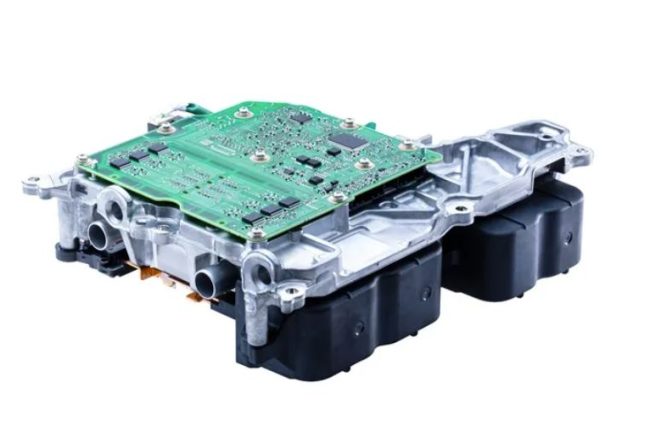Denso has revealed its first-ever inverter equipped with silicon carbide (SiC) semiconductors. This device has been integrated into the eAxle, an electric driving module designed by BluE Nexus, and will be deployed in the new RZ, the first battery electric vehicle (BEV) model of Lexus, which was launched on March 30, 2023.
SiC power semiconductors use silicon and carbon to lower power loss, and according to a BEV test, inverters containing SiC semiconductors demonstrated reduced power loss by half compared to those with silicon (Si) power semiconductors, enhancing the energy efficiency and cruising range of BEVs.
To develop the new inverter, Denso utilized SiC power semiconductors with its unique trench-type metal-oxide-semiconductor (MOS) structure. The structure ensures high voltage and low on-resistance operation, resulting in a better output per chip by reducing the power loss caused by heat generation. Denso also employed high-quality technology, jointly developed with Toyota Central R&D Labs, to manufacture the inverter. The company used SiC epitaxial wafers that incorporate results of work commissioned by New Energy and Industrial Technology Development Organization (NEDO), reducing the number of crystal defects that prevent the device from operating normally.
Denso has named its SiC technology Revosic, and uses it to develop technologies for products from wafers to semiconductor devices and modules like power cards. The company aims to aid the creation of a carbon-neutral society by creating more efficient energy management for vehicles, while also utilizing the grant from the Green Innovation Fund (GI Fund), which was adopted in 2022.



No comments yet.